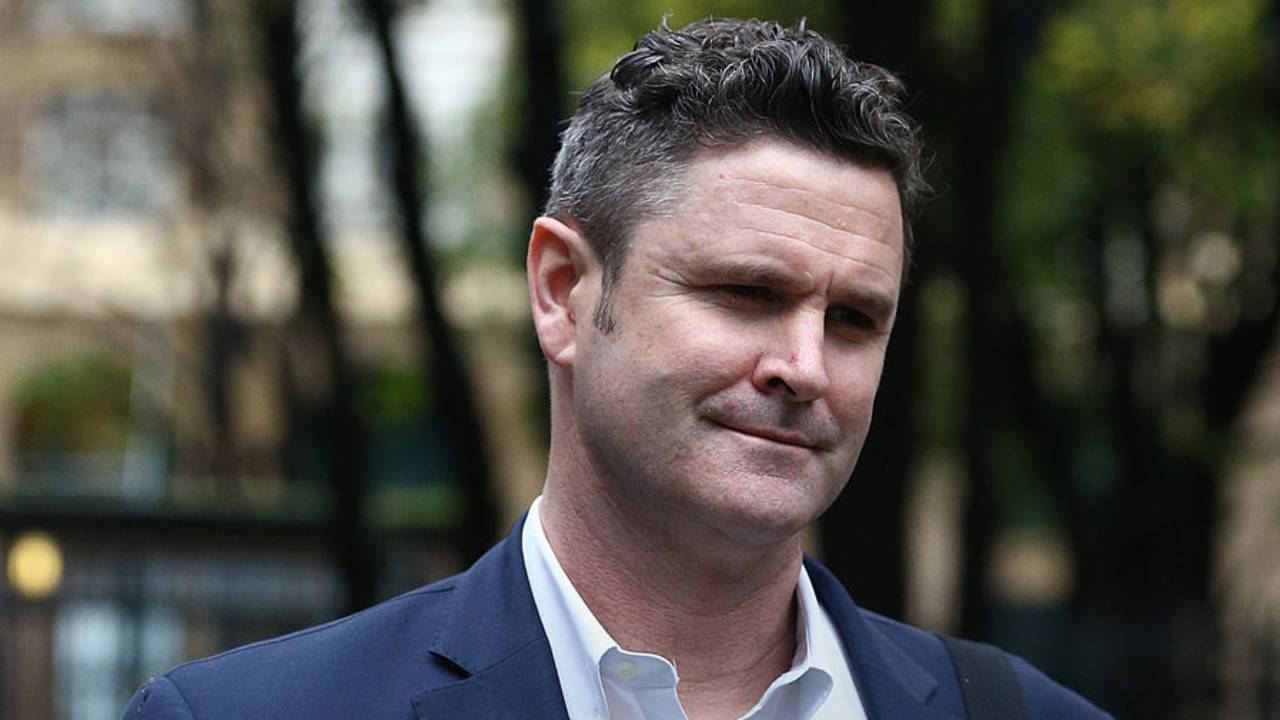The jury in the Chris Cairns perjury trial has retired to consider its verdict and will reconvene at Southwark Crown Court on Friday to continue its deliberations.
The presiding Judge, Mr Justice Sweeney, concluded his two-and-a-half days of summing-up at 1.02pm this afternoon, at which point he advised the jury that they should feel under no time pressure to return a verdict in a case that is already into its eighth week.
Cairns denies two counts of perjury and perverting the course of justice, relating to his successful libel action against Lalit Modi, the founder of the IPL, at the High Court in 2012. His co-defendant and former legal advisor, Andrew Fitch-Holland, denies one count of perverting the course of justice, after allegedly attempting to secure a false witness statement from Lou Vincent to support Cairns' case against Modi.
If the jury finds Cairns guilty of perjury, in relation to his statement at the High Court that he had "never" cheated at cricket and would not contemplate doing so, then they can move onto the charge of perverting the course of justice, in which Fitch-Holland is considered the primary perpetrator. If Fitch-Holland is found not guilty, then Cairns must also be acquitted of that charge. If he is found guilty, the jury can then consider whether Cairns had conspired with Fitch-Holland in a "joint enterprise" to obtain the statement.
In his final day of summing-up, Mr Justice Sweeney took the jury through the evidence provided by Brendon McCullum, the New Zealand captain who, along with Vincent and Vincent's ex-wife, Eleanor Riley, is considered one of the three key witnesses to the perjury charge. The judge reminded the jury that at least two of those testimonies must be considered true for the charge to be upheld.
Revisiting McCullum's evidence, Mr Justice Sweeney reminded the jury that McCullum had claimed to have been approached three times by Cairns to match-fix, firstly on the eve of the inaugural Indian Premier League in Kolkata in April 2008, then by phone a few days later, and finally in person in Worcester on June 11, during New Zealand's Test tour of England.
The details of these approaches, which Cairns denies, only came to light after an ICC anti-corruption briefing in Bangladesh in February 2011, on the eve of the World Cup. McCullum, who had previously confided in two team-mates, Daniel Vettori and Kyle Mills, was encouraged to come clean and did so in the course of three interviews with the ICC Anti-Corruption and Security Unit (ACSU) briefings between 2011 and 2014.
John Rhodes, the ACSU officer who conducted the interviews, said in his evidence that McCullum had come across as a "very nervous young man" who was "struggling in relation to his relationship to Chris Cairns".
"The inference was clear", Rhodes had added, that McCullum had been approached to underperform, but it was not his role, as the interviewer, to put words in McCullum's mouth. However, the ICC did not go on to investigate Cairns in the wake of McCullum's statement, even though, in the words of Sir Ronnie Flanagan, the ACSU chairman, it was added to a file on Cairns which contained other information that went "beyond rumour".
In each of his three interviews with Rhodes, the transcripts of which were available to the jury in a Q&A format, McCullum added extra details, including the name of Ricky Ponting, who had been present in the hotel bar in Kolkata when Cairns had phoned to make his first approach, and who also gave evidence earlier in the trial.
Mr Justice Sweeney told the jury that "it is a matter for you" whether McCullum had deliberately altered his account to serve his own interests, as the defence have suggested, or whether the extra details were innocently provided on account of more careful questioning in each of the three interviews.
